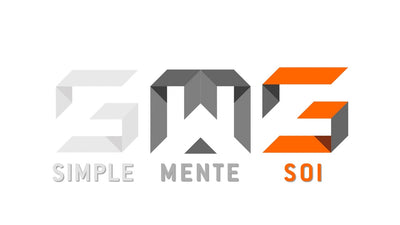Meditation: A Tool for Peacefulness and Mental Health

I’ll be honest with you—when I first heard about meditation, I thought it was just sitting in silence trying not to fall asleep. I imagined monks in robes chanting on mountaintops, completely detached from the chaos of modern life. Turns out, I was dead wrong. Meditation isn’t about zoning out; it’s about zoning in. And if you want to be happier, healthier, and (let’s be real) a little less prone to flipping out in London traffic, then it might just be the tool you never knew you needed.
Why Should You Care About Meditation?
Look, life is hectic. Between work stress, personal responsibilities, and the never-ending stream of bad news, our brains rarely get a break. Meditation is like a mental spa day—except you don’t have to book an appointment or put on a fluffy robe (unless you want to, which, by the way, I fully support). Research has shown that regular meditation can lead to:
· Reduced stress and anxiety
· Improved emotional well-being
· Better concentration (finally, a way to stop re-reading the same email five times)
· Enhanced self-awareness (so you can recognize when you’re about to send that passive-aggressive text and stop yourself)
· Increased happiness (because who doesn’t want more of that?)
Meditation and Happiness: The Science Behind It
Happiness isn’t just about external circumstances—it’s a mindset. And meditation helps tweak that mindset for the better. Studies show that meditation increases levels of serotonin and dopamine (a.k.a. the happy chemicals), while decreasing cortisol, the stress hormone that makes you feel like a caffeinated squirrel on a bad day.
Neuroscientists have even found that long-term meditation can physically change the brain, strengthening areas responsible for emotional regulation and reducing the size of the amygdala, the part of the brain linked to fear and stress. In other words, meditation is like a workout for your happiness muscles.
But I Live in London! How Do I Find Time to Meditate?
Ah, London—one of the greatest cities in the world, but also a place where people speed-walk like they’re training for the Olympics and sigh audibly if you take too long at the self-checkout. Finding time to meditate here can feel impossible, but it’s actually easier than you think.
Here are some sneaky ways to incorporate meditation into your daily life:
· Morning Coffee Meditation: Instead of scrolling through the news while you drink your coffee, just sit and focus on the warmth of the cup, the aroma, and each sip. Boom—you just meditated.
· Commuter Meditation: If you take the Tube or bus, pop in your headphones and listen to a guided meditation instead of plotting ways to avoid eye contact with fellow passengers.
· Shower Meditation: Focus on the sensation of the water, the sound, and your breath. It’s like a mini-retreat in your own bathroom.
· Pre-Sleep Wind-Down: Instead of doomscrolling, spend five minutes breathing deeply before bed. Your sleep quality will thank you.
· Lunch Break Meditation: Step outside, find a quiet bench, and just breathe for five minutes. Even a short pause in the middle of the day can help reset your mind.
Health Benefits You Can’t Ignore
Meditation isn’t just about feeling zen—it’s got some serious health perks. Studies from institutions like UC Davis and Healthline highlight that meditation can:
· Lower blood pressure
· Boost immune function (hello, fewer colds!)
· Improve digestion (because stress and gut health are BFFs)
· Reduce symptoms of anxiety and depression
· Increase pain tolerance (useful when you stub your toe on the coffee table for the tenth time)
· Enhance emotional resilience, making it easier to handle setbacks with grace
· Improve sleep quality, helping you wake up feeling refreshed instead of groggy
And let’s be honest, given the price of healthcare, anything that keeps us healthier without a hefty bill is a win.
Getting Started: No, You Don’t Have to Be a Meditation Guru
If you’re imagining yourself sitting cross-legged in a candlelit room chanting “Om,” I get it. But the truth is, meditation doesn’t have to be fancy. You don’t need a special cushion, incense, or even a set amount of time. Here’s a super simple way to start:
1. Find a quiet-ish spot (your bed, a park bench, even your desk if your coworkers aren’t too nosy).
2. Close your eyes and take a deep breath.
3. Focus on your breathing. Inhale. Exhale. That’s it.
4. If your mind wanders, gently bring it back to your breath.
5. Do this for 2-5 minutes.
And congratulations—you just meditated! Over time, you can increase the duration and explore different techniques, like body scans, visualization, or loving-kindness meditation.
What About Guided Meditation?
If sitting in silence feels intimidating, try a guided meditation. There are plenty of apps like Calm, Headspace, and Insight Timer that offer free and paid guided sessions to help you ease into the practice. You can also find great guided meditations on YouTube if you’re on a budget.
The Takeaway
Meditation isn’t just for monks or yoga enthusiasts. It’s for anyone who wants to feel calmer, happier, and more in control of their mental health—whether you’re dealing with the fast-paced chaos of London life or just trying to stop your brain from running a 24/7 anxiety marathon.
So why not give it a try? Worst case, you get a few moments of peace. Best case, you unlock a whole new level of happiness and well-being. And who doesn’t want that?
Whether you start with just a few minutes a day or dive into longer sessions, meditation is a powerful tool for happiness and mental health. The benefits are undeniable, and all it takes is a little bit of commitment. So go ahead, take a deep breath, and begin your meditation journey today!
Follow our Simplementesoi blog for more mindfulness tips and insights. Read our blog to stay healthy in any possible aspect.


This article beautifully captures how meditation can be more than a practice — it’s a pathway to peace and improved mental health. The way you describe its capacity to calm inner turmoil, anchor presence, and nurture self-compassion is genuinely inspiring. Thank you for reminding us of its transformative power.
https://ibizatantrafestival.com/
Thank you for sharing this insightful article on meditation as a tool for peace and mental health. Your humorous and relatable approach makes the practice feel accessible, even in the hustle and bustle of city life. The way you highlight the mental and physical benefits of meditation, from reducing stress to enhancing self-awareness, is both informative and encouraging.
For those inspired to deepen their practice and explore embodied presence in a supportive community, consider the Ibiza Tantra Festival. As Europe’s first and only Tantra Festival, it offers immersive workshops in sacred movement, breathwork, ecstatic dance, sound healing, and ritual ceremonies, guided by international facilitators in a conscious, heart-centered environment.
Discover more here: https://ibizatantrafestival.com/
Leave a comment